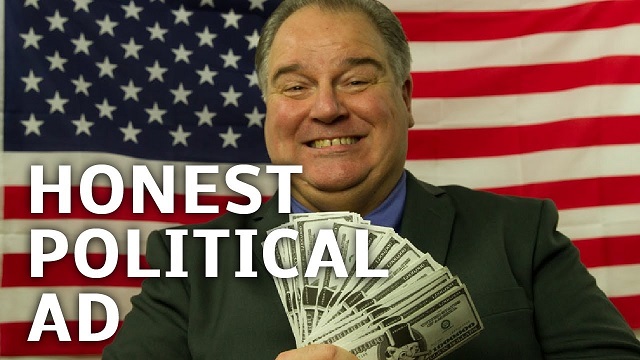Capitalist Theory Is Better Than Socialist Reality by Sandy Ikeda
Tell someone on the left that crony capitalism is not the same as the free market and they’ll often respond that capitalism as it really exists is crony capitalism. They will say that there has never been an instance of capitalism in which government-sponsored or government-abetted cronyism didn’t play a substantial role — either through war, taxation, or slavery — in a market economy. As a result, the failings of crony capitalism — corruption, privilege, oppression, business cycles — are simply the failings of capitalism itself.
One correct response is to show that the less intervention there has been, the less corrupt, privileged, oppressive, and unstable the socioeconomic order also has been. Many would simply reiterate that, historically, laissez-faire capitalism has never existed, nor could it exist, without interventionism. They simply will not or cannot distinguish the free market from state capitalism, corporate capitalism, or other forms of the mixed economy.
Which is perhaps why some on the left have adopted the term “neoliberalism,” a perfectly good word that has come to represent an imbroglio of vaguely market-cum-corporativist views. They can’t imagine how markets could work without some form of state intervention holding it all together. And that’s probably because they reject what economist Peter Boettke calls “mainline economics,” or economics in the tradition of Adam Smith, Frédéric Bastiat, and Carl Menger, among others.
It’s frustrating, but there are two points I’d like to make. The first is that in our libertarian critiques of collectivism, we often make an argument that sounds similar to the one people on the left make. But, second, if libertarians are careful, they may be more justified in doing so.
What Is the Turnabout?
Most socialists today have abandoned their earlier claim that socialism generates greater material prosperity, but many on the left still insist that under a pure collectivist system, greater justice and equality would prevail. Socialism, in other words, is a far more humane socioeconomic order than capitalism.
How do libertarians respond to such a claim?
Sometimes we react with contempt or with disbelief that anyone could be so stupid or so evil or both as to argue such a thing. I hope no reader of theFreeman would react that way, although I’m afraid some do. Sometimes we react with slightly more civility by aiming our dismissive contempt not at the person but at the leftist ideas she holds. I will only say that we should take to heart what John Stuart Mill wrote in On Liberty about so-called bad ideas and opinions:
Every opinion which embodies somewhat of the portion of truth which the common opinion omits, ought to be considered precious, with whatever amount of error and confusion that truth may be blended.
There are other responses to the claim that socialism is more just and humane than capitalism, but I would like to focus on the one that I’ve often used: socialism in practice has always and everywhere tended to lead, to the degree that it is consistently applied, not to freedom and material well-being, but to tyranny and want. In other words, while socialism in theory may be all good things to all good people, the more government has practiced collectivism and central planning to achieve its goals of justice and equality, the farther it has fallen short of those goals. (And if you think countries such as Sweden are the exception, you might read my March 2013 Freeman article, “The New Swedish Model.”)
How is that different from the left’s position that legal privilege, oppression, and other problems are part and parcel of capitalism in practice? Each side seems to be arguing that the historical failings we’ve witnessed in each system are necessary to that system and not exceptions — features, not bugs.
A Possible Resolution
Clearly, the die-hard socialist and the die-hard libertarian argue from different fundamental principles. While there are many varieties of socialism, all are suspicious to a fairly high degree of private property, prices, and profit as the central ordering forces of society. Libertarians, too, are diverse, but I believe we all share strongly opposite views to those on the left on private property, prices, and profit as necessary (and for some libertarians, mistakenly I believe, sufficient) for a civil and prosperous society.
Socialists and indeed interventionists of all stripes also seem confident that the intentions of government authorities (especially those who have been elected) are virtuous enough and their knowledge reliable and complete enough to succeed in promoting the general welfare. In this, I think, it boils down to the underlying economics.
As a rule, libertarians use mainline economic theory to reach their conclusions about socialism and the perverse dynamics of interventionism. (There are, of course, ethical and philosophical approaches, as well.) And while interventionists and perhaps even some collectivists may believe that mainline economic theory does an okay job of framing some questions and of finding some answers to those questions, they also believe that mainline economics is far too limited to address a significant proportion of economic issues.
But the problem with such a view is that there’s no principled way to say in what circumstances mainline economics has failed. Sure, no theory of the economic system, mainline or otherwise, gets it right in every instance. We then have to look to historical evidence to clarify when, under what circumstances, and to what extent mainline economics holds up. And the historical evidence is indeed on the side of the libertarian interpretation of what collectivism and various degrees of central planning are, and of what laissez-faire capitalism is.
Indeed, the historical evidence overwhelmingly shows that social mobility, innovation, prosperity, per capita income, and per capita wealth are all tightly and positively correlated with economic freedom. And contrariwise, to the extent that economic freedom is lacking, social and economic stagnation, want, and shrinking civil rights have followed. (See, for example, the most recent publication of FreetheWorld.com.)
Someone might retort that correlation is not causation, and they would be right if there wasn’t a causal theory linking economic freedom with all those great things. But libertarians do have such a theory, and it’s called mainline economics.
Those on the left, however, don’t have a coherent theory of the mixed economy. Indeed, no such theory exists. There are several theories of so-called “market failure,” but they do not together constitute a coherent theory. What does exist is a critique of the mixed economy that is based on the realization that the ordering principle of the free market and the ordering principle of collectivist central planning are logically incompatible. One is based on open-ended entrepreneurial competition, the other on some form of constraining central planning. Interventionist approaches that attempt to combine them aren’t really systems at all. They are literally incoherent, and what makes them incoherent is the absence of a consistent ordering principle.
(My contribution to this volume [PDF] delves into this topic more deeply.)
Instead, what you’re left with, given the cognitive limits of the human mind and the spontaneous complexity of real-world systems, is expediency. Each problem is addressed not on the basis of principle, but in ad hoc fashion according to the prevailing interests of the moment. In the case of capitalism, while opportunism and cronyism do constantly pull in the direction of expediency, the force resisting that pull is entrepreneurial competition. That’s because cutting corners opens opportunities for one’s rivals to do a better job. Moreover, that competition operates more effectively to resist and absorb all forms of intervention, crony or otherwise, the less interventionist the system is.
So while the form of the critiques of the left and of libertarians may sound similar, they are vastly different in substance.
Sandy Ikeda is a professor of economics at Purchase College, SUNY, and the author of The Dynamics of the Mixed Economy: Toward a Theory of Interventionism.






